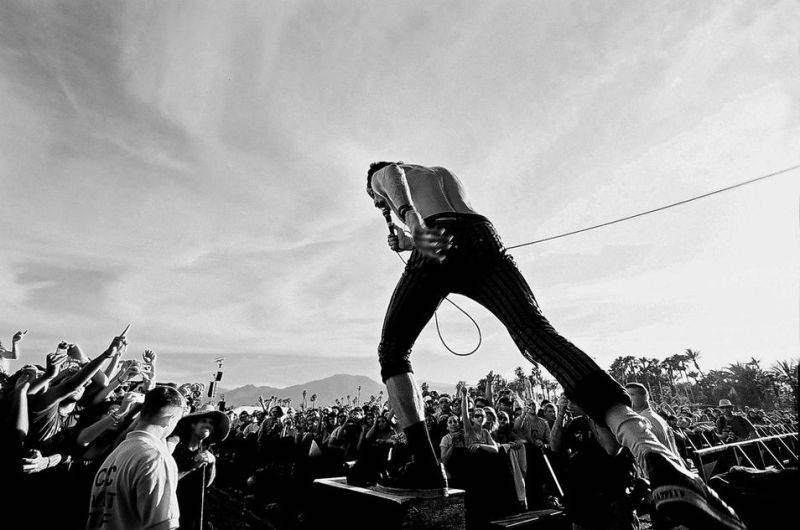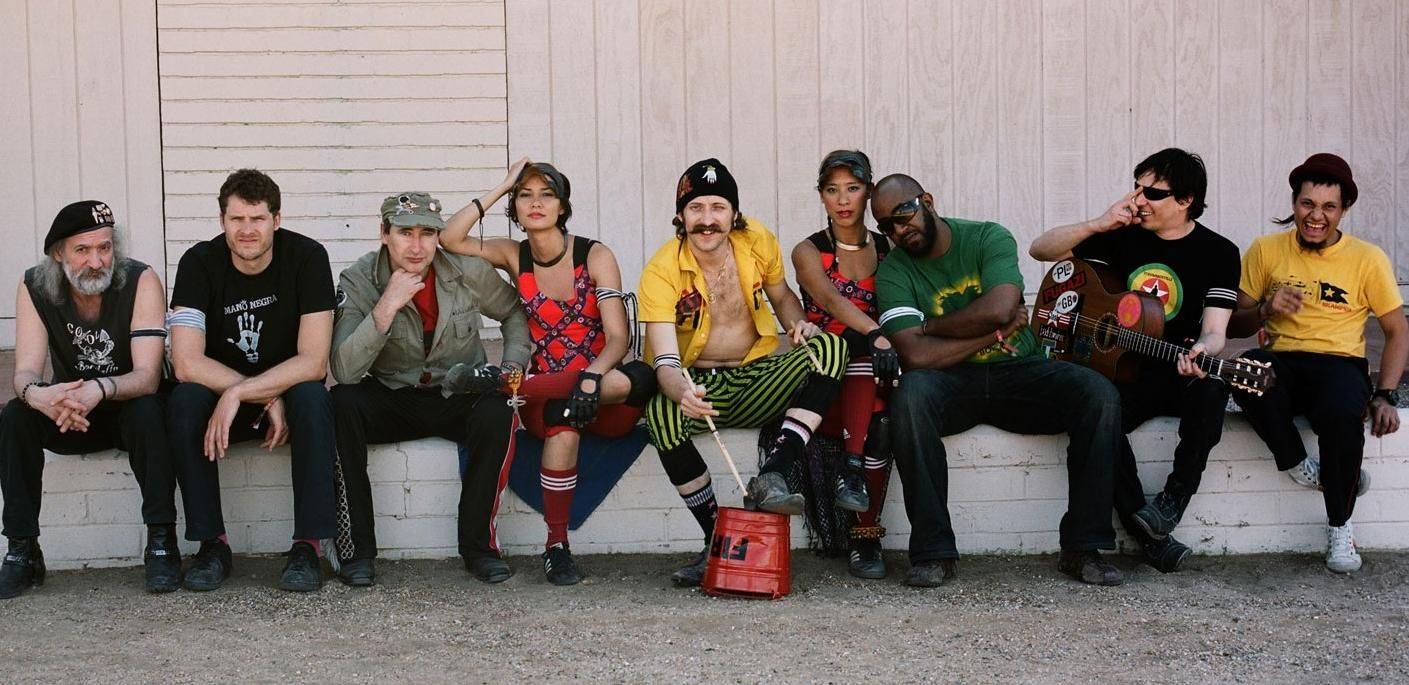Eugene Hütz’s story is not so different from the immigrant tale we’ve all heard hundreds of times. Hütz left his country at a young age as his family fled their Ukrainian hometown after word of the Chernobyl disaster and then bounced around in various Eastern European refugee camps for years before finally finding himself in New York. However, in an unusual twist on the regular narrative, at the end of this story, or at least by the present moment, Hütz has made himself into a genuine rock star with his band Gogol Bordello, who will be performing at Urbana’s Canopy Club tonight.
A band that, according to Rolling Stone, put on some of the most riotous shows in the world, Gogol Bordello is known for breaking down walls both musically and politically. Hütz’s music, which takes influence both from punk rock and traditional gypsy influences, addresses issues not often discussed in rock and roll, even within the protest-oriented structure of punk. International both in the sense of their sonic orientation and its subject matter, Gogol Bordello records often speak for the refugees in society, both literal and metaphorical.

In pairing gypsy music and punk, Gogol Bordello combines a music rooted in the freedom and protest with a tradition both longer and more tragic, as gypsy music bears with it the weight of hundreds, if not thousands, of years of inequality and discrimination. In doing so, Hütz brings to bear the sins of our own time, and suggests that what troubles us today has been plaguing humankind for much longer than we realize. The solution, however, is not one of revolution in a grand political sense, but rather on a smaller, interpersonal level, as Hütz explained in an interview with Mother Jones after the release of their album Trans-Continental Hustle.
Revolution in our Gogol Bordello language does not mean an act of violence, of overthrowing the state. The first line in “Raise the Knowledge” is “Revolution is internal.” I think that political revolution discredited itself absolutely, once and for all time, in this century. However, I am really interested in things like human capabilities and human advancement and the communal feel of the human race. It’s the antidote to the reactionary politics that are created by nothing but, you know, greedy people who still can’t fucking understand that you can’t take it with you once you’re done.
What matters in Gogol-land is not the worldly implications of the music, but rather the moment itself — a moment of escape from the history borne on all of our shoulders.
Gypsy music — in the same tradition of subculture art throughout history — takes a long story of oppression and compresses it into an orgiastic moment of celebration and release. Combine this with the energy of punk and the result promises, as Hütz described it in an interview on Fresh Air, “complete orgasmo-hysteria” a feeling sure to be in great supply at the Canopy Club.








